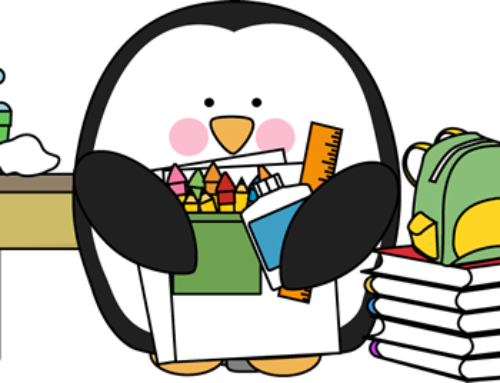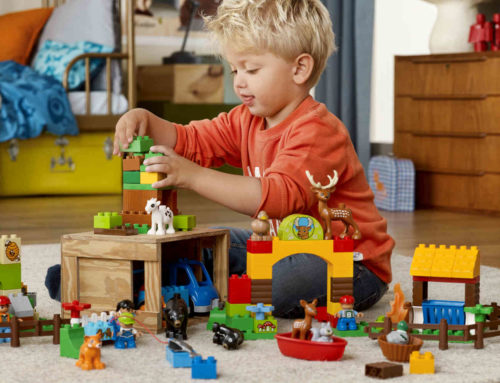For many parents, the idea of raising a bilingual child is very appealing, yet also quite daunting. How do we start? Will they get confused? How will this affect them at school?
“Worldwide, it is estimated that there are more second language speakers of English than native speakers and that there are as many bilingual children as there are monolingual children” – The Hanen Centre
In our constantly growing and changing world, many children are being raised as bilinguals (someone who speaks two languages). Being bilingual does not mean that you are equally proficient in both languages. Most bilinguals have a stronger “dominant language” which is often influenced by the language most used in the society in which they live. A person’s age, education and employment are just a few of the many factors that continue to influence and even change a person’s dominant language over time.
Parents are often concerned that learning two languages at home will cause confusion or a language problem in young children. This is not the case! There are actually lots of reasons why raising your child to use more than one language is a great thing to do. Studies have shown that being bilingual makes the brain stronger, particularly in the areas of language, memory and attention. So children who learn two languages may…
- Have better language & listening skills
- Be better at reading and writing
- Be more creative
- Have stronger multitasking skills
- Have a sharper memory
- Be better at solving problems
- Have a chance to make more friends
- Find better jobs later in life
I know… what’s not to love about that?
When should we start?
Sometimes the biggest hurdle for families is just simply getting started. Studies show that the best time to learn two languages is before the age of 7 but really it is never too early. Parents can start to expose children to two languages during pregnancy. When parents speak two languages their unborn baby hears a variety of sounds that prepare their brain to learn two languages. Although once the baby arrives trying to decide who will speak what, to whom and when isn’t always so easy!
There are two different ways that children learn languages:
1. Simultaneous Learning
This is where children learn two (or more) languages at the same time from birth.
Learning two languages simultaneously will not delay your child’s communication development. On average, children say their first word around the age of 12 months however for some it may be as early as 8 months and for others as late as 16 months. Anything within this range is considered to be normal.
Check out our previous post All you need to know about your child’s first words to find out more.
Bilingual babies and young children may start talking slightly later than children learning one language, however they will still reach their language milestones within the normal timeframe. Furthermore, these children learn how to differentiate their two languages very quickly and know which language they should use with particular people.
2. Sequential Learning
This is when a second language is introduced after the first language has been well established. This is usually after the age of 3 years.
Children who learn a second language in this way often experience a “silent period”. This is completely normal and can last from a few weeks to several months. Younger children may take more time to work through this phase compared to older children. During this time they may rely on using gestures and a few key words in the second language as they are most likely focused on building their understanding of this new language.
It is also very common for a child’s early interactions in the new language to contain one word labels or short phrases they have heard and memorized. As time passes, they will begin to use some of their newly acquired vocabulary in simple sentences. As their knowledge of the language and confidence continues to grow, they will become more fluent but will continue to make grammatical mistakes (e.g., “I want the car red” or “I no want eat that”).
As children become better at using the new language, they may want to stop using their first one. It is very important that you keep talking to your child in your first language at home, once they have started attending childcare or school. This will ensure that they continue to have the opportunity to listen to and use their first language, which for many people is an important part of family life, traditions and culture.
There is no right or wrong way for your child to become bilingual.
Regardless of whether you choose the simultaneous or sequential learning road, the question remains – how do you decide which language to use when?
Unfortunately there is no clear-cut answer. Each family will need to think about their situation and skills in each language to decide which approach works best for them. We know that children who have a solid and strong first language learn subsequent languages more easily. Therefore, the best thing you can do for your child is speak to them in your strongest language.
Some possible arrangements that might work for your family include:
- One parent – one language (e.g. mum uses Spanish, dad uses Italian)
- One place – one language (e.g. Vietnamese at home, English at school)
- One activity – one language (e.g. Greek at home and English at playgroup)
Remember… learning language takes time! Children need to have the opportunity to practise listening to and using each language often. Listening to adults speaking to each other or watching TV shows in a certain language is not enough. Instead, try to use the language in natural everyday activities such as during mealtimes, getting dressed or having a bath. Talk about your child’s interests and read, play and sing songs to help develop and keep your child’s first language.
What if my child has a language delay?
If your child has a language delay they can still learn two languages. Studies show that whilst it will not make them more delayed, they will experience their speech and language difficulties in both languages. Many families with a language delayed child are often mistakenly advised to stop using both languages and just pick one. However, doing this may limit your child and may reduce your child’s chances to talk, play and even get to know other family members or people from the community.
Remember…
- In order to learn language children need the opportunity to hear it and practise using it often!
- It is normal for them to make lots of mistakes and mix their two languages together
- Try to give your child lots of opportunities to hear, speak, play and interact in your home language once they have started childcare or school
- Always use your strongest language with your child so that they are getting the best model to learn from
- If you have any questions or concerns about your child’s speech and language development contact a speech pathologist for advice
Happy Talking!
Don’t forget to Like Modern Speechie on Facebook for more information and tips to help children be the best communicators they can be!






